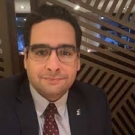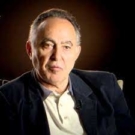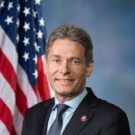Speakers

Michele Dunne
Director and Senior Fellow at the Middle East Program
Carnegie Endowment for International Peace

Moataz El Fegiery
Protection Coordinator for Middle East and North Africa
Front Line Defenders

Bahey Eldin Hassan
Director
Cairo Institute for Human Rights Studies

Tom Malinowski
Former Assistant Secretary of State for Democracy, Human Rights, and Labor
US Department of State
Moderator

Joyce Karam
Washington Bureau Chief
Al-Hayat newspaper

Stephen McInerney
Executive Director
Project on Middle East Democracy (POMED)
Event Summary
On March 30, 2017, the Arab Center Washington (ACW) partnered with the Project on Middle East Democracy (POMED) to present a panel that explored the topic, “Egypt and the United States under the Trump Administration.” The distinguished speakers included two special guests who are deeply involved in Egyptian human rights work: Bahey Eldin Hassan, Director of the Cairo Institute for Human Rights Studies, and Moataz El Fegiery, Protection Coordinator for Middle East and North Africa at Front Line Defenders. Hassan and El Fegiery were joined by Michele Dunne, Director and Senior Fellow at the Middle East Program, Carnegie Endowment for International Peace, and Tom Malinowski, who served as US Assistant Secretary of State for Democracy, Human Rights, and Labor from 2014 to 2017.
ACW Executive Director Khalil Jahshan offered introductory remarks, saying that the issue of democracy is central to the missions of both ACW and POMED. He said that the Egyptian speakers, whose visits were set up collaboratively by both organizations, have been in town for several days for meetings with representatives of the legislative and executive branches of government as well as the media and human rights organizations. “Our commitment to democracy,” Jahshan said, “is not academic—it rests on actual results of surveys that the Arab Center for Research and Policy Studies in Doha has conducted over the years.” The latest Arab Opinion Index 2016, he continued, indicated that only 40 percent of Egyptians thought that they could criticize the government and express their opinions without fear. By contrast, in 2012-2013, that number was 88 percent. The survey also found that 80 percent of Egyptians still choose democracy as the best form of government.
POMED Executive Director Stephen McInerney added his welcome to the audience and noted that Egyptian President Abdel Fattah Al-Sisi’s upcoming meeting with President Donald Trump will be the first visit of an Egyptian president at the White House since Hosni Mubarak’s trip in 2009. The issues that will be discussed by the two heads of state, such as fighting ISIL and regional peace and security, are intimately tied to issues of human rights. McInerney said that Egypt could be a valuable partner to the United States as it works on these important issues.
Washington Bureau Chief of Al-Hayat newspaper, Joyce Karam, moderated the panel discussion. She said that it has been forty years since the White House meeting between Presidents Jimmy Carter and Anwar Sadat in 1977, and since then, a lot has changed in the region and in US-Egyptian relations. At present, US President Donald Trump’s statements on Egypt have been short and blunt, with no mention of human rights. A case in point, she noted, is that the two Egyptian panelists have had to flee Egypt because of their work in this arena.
Bahey Eldin Hassan explained five points that characterize the current dynamics in Egypt: 1) the lack of justice and absence of accountability for the massive human rights crimes being perpetrated in Egypt, including killings, systematic torture, enforced disappearance, and extrajudicial killings; 2) continuing eradication of all forms of activism as well as social and cultural activities; 3) a huge and qualitative gap in political and cultural values between the Sisi regime and the young generation, and this constitutes a major source of instability; 4) the erosion of major state institutions, like the parliament and the judiciary, with an unprecedented degree of direct governance by Sisi and his officials; and 5) the need to fight terrorism, which is high on Trump’s agenda, but is not high on Sisi’s despite the fact that the security situation in the Sinai has deteriorated considerably with the presence of ISIL there. Hassan warned that if this continues, Sinai could become “Egypt’s Mosul.” He added that the Egyptian people will be watching the Trump-Sisi meeting closely. The main concern for Egypt’s president during this visit is how to use it to support his candidacy in next year’s presidential elections. Hassan also said that if the outcome of the visit is Trump’s unconditional support for Sisi, then the Egyptians will understand this as impunity for the Sisi regime’s policies and a blessing for longstanding suffering for the people under Sisi. In the long run, the United States will end up paying a heavy price for this unconditional support.
Moataz El Fegiery built on Hassan’s remarks and painted a bleak picture of the experience of activists in Egypt. There are 60,000 political prisoners there, including journalists, human rights and democracy activists, and many others who are under constant threat of being charged with treason for their actions. He said that it is in this context of an appalling situation of human rights and governance in Egypt that the security situation should be addressed. Some of the fundamental factors to take into consideration are 1) an accumulation of grievances, especially among young people and local marginalized minorities (like the Christians, Nubians, and communities in the Sinai), and the trials of civilians in military courts; 2) a declining public trust in state institutions and the “politicization of justice” in Egypt, wherein the parliament has become a tool for repression along with the lack of accountability of the executive; 3) an ongoing curtailment of moderate voices among the opposition, both secular and Islamist, which will put Egypt at risk in the future. In addition, socioeconomic hardship fuels discontent, so confidence building measures are needed to address security and economic challenges. El Fegiery echoed Hassan’s admonition that Sisi will be looking to the United States to legitimize his rule, as he is most concerned with his own survival. However, if during his visit the discussion of Egyptian human rights is not pursued by the Trump Administration, then he will understand Trump’s behavior as a green light for Sisi to continue his repressive practices.
Michele Dunne focused on US-Egyptian relations and said that the internal affairs in Egypt have made past US presidents disillusioned with the country and its leaders. Egypt has become a “problematic ally” to the United States as questions of governance and human rights abuses have driven the population to despair and radicalization. Nevertheless, she cautioned, the domestic affairs of Egypt are indeed a concern to the United States, which wants to see economic and political stability there. She said that it is apparent that Sisi’s strategy is not to adopt policies to improve education and enhance the growth of labor and the economy; instead, he invests billions in mega projects led by the military. As for the upcoming Sisi visit, she said that relations between Washington and Cairo have cooled for a long period. President Trump will realize that Egypt’s internal problems make its usefulness to the United States limited and will ask, what is the United States getting out of this relationship? Dunne noted that most US leaders have historically supported the person in power in Egypt, and it is possible that President Trump will follow suit. She asked, could there be a more productive partnership?
Tom Malinowski said that there is a common assumption that Egypt presents a trade-off between promoting democratic values, on the one hand, and protecting US security interests. In fact, Egypt “does nothing” for the United States in terms of ISIL—it does not fight with the coalition in Mosul and Raqqa, for example. In the Sinai, Egypt employs tactics that have made the insurgency there broader and worse, and it does not listen to advice from the US Department of Defense. Both President Obama and Secretary of State Kerry had meetings with Sisi to urge him to ease up on civil society, reform the economy, let people out of prison, and the like, but they found the conversations frustrating. The appalling reports of cruelty by Egyptian security services and repressive tactics on most sectors of the population have shown that the situation became worse. Malinowski explained that it is clear that Trump sees no reason for the United States to be a force for good and to buttress a human rights agenda in the world. Instead, the burden of promoting such values will fall increasingly to other institutions like the US Congress and civil society. Further, Trump will not use US military aid to Egypt as leverage to improve the human rights situation there. He concluded that as a result, many new crises will be created to which the United States will have to respond.

